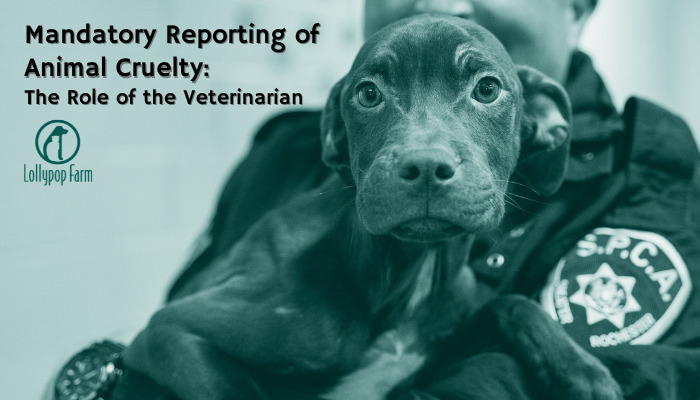In the intricate interplay between social work and animal welfare, a crucial question emerges: Are social workers required to report animal cruelty? The implications of this inquiry resonate far beyond the immediate concerns of pet owners and shelter advocates. Instead, it delves into broader societal responsibilities and the ethical obligations that professionals assume when they enter these fields.
To address this question, it is essential to understand the legal frameworks that govern both social work and animal welfare. Social workers, as mandated reporters, are professionals who are legally obligated to report suspected instances of abuse or neglect. The salient assumption is that these duties typically pertain to human clients, particularly vulnerable populations such as children, the elderly, and individuals with disabilities. However, the intersection between human and animal welfare is complex and multifaceted, prompting a reevaluation of what constitutes a duty to report.
The crux of any discussion surrounding animal cruelty lies in its definition and manifestations. Animal cruelty encompasses a spectrum of behaviors that result in harm or suffering to animals. This includes not only overt acts of violence but also neglect, such as inadequate shelter, food, or medical care. In many jurisdictions, laws enacted to protect animals vary significantly, making the landscape of mandatory reporting ambiguous. Social workers, therefore, often find themselves navigating a maze of regulations that may or may not encompass animal welfare.
While in many states, social workers are not explicitly required to report animal cruelty, there exists a moral imperative that compels professionals to act. The correlation between domestic violence and animal abuse is well-documented; studies reveal that individuals who inflict harm on animals are often replicating similar behaviors towards humans. This cyclical pattern necessitates a more holistic approach to social work, where practitioners recognize that the well-being of both humans and animals is interdependent. By failing to report animal cruelty, social workers may inadvertently perpetuate an environment of violence that affects entire families.
Moreover, the ethical considerations surrounding this topic are profound. The National Association of Social Workers (NASW) Code of Ethics stipulates that social workers should promote social justice and challenge social injustices. If animal cruelty is seen as a social injustice, then the ethical implications of non-reporting become even more pronounced. Social workers who encounter signs of animal suffering must grapple with their responsibilities towards their clients and their duties towards animals. This dual allegiance creates a nuanced landscape where professionals are often hesitant to intervene, fearing the potential ramifications on human clients.
Yet, this reticence can have far-reaching consequences. Studies indicate that addressing animal cruelty can contribute to the overall health and safety of a community. An environment where animals are protected tends to correlate with decreased levels of violence against humans. Therefore, promoting policies that enable or encourage social workers to report suspected animal abuse not only safeguards the animals but can also transcend into broader community welfare.
Consider the potential ramifications of adopting a proactive stance on animal welfare in the practice of social work. By fostering training programs that educate social workers on recognizing the signs of animal cruelty, organizations can equip them with the necessary tools to navigate these complexities. Training could include identifying behavioral indicators, understanding local laws, and navigating the resources available for both human and animal welfare. Moreover, these programs could stress the importance of communication between social services and animal welfare organizations, forming a robust support network for those navigating these challenging waters.
In examining case studies where social workers have intervened in instances of animal cruelty, there emerges a compelling narrative of success. Instances where animals have been removed from harmful environments not only lead to improved conditions for those animals but often serve as a pivotal moment for family dynamics. Families that face intervention regarding animal care sometimes are prompted to reassess their treatment of all living beings within the household. These moments can catalyze change, fostering an awareness that could ripple through communities.
It becomes apparent that a shift in perspective is necessary. Viewing animal welfare through the prism of social work illuminates an interconnectedness that is often overlooked. The consequences of animal cruelty extend beyond the immediate harm inflicted; they infiltrate the very fabric of social structure and human behavior. Understanding that social work can play a pivotal role in combating this injustice fosters a renewed sense of responsibility among practitioners.
There is an undeniable need for social workers to recognize their potential as advocates for animals, alongside their traditional roles in human services. By employing a more inclusive definition of welfare that encompasses both human and animal needs, social workers can lead the charge towards a more compassionate society. Implementing systemic change, encouraging dialogue, and fortifying alliances with animal protection entities could herald a transformative era in social work.
In conclusion, while the question of whether social workers are required to report animal cruelty may lack a straightforward answer, the underlying obligations of the profession urge a deeper consideration of this issue. As society evolves, so too must the roles of its caretakers. By cultivating an awareness that acknowledges the intricate connections between humans and animals, social workers can thrive as catalysts for change, promoting a landscape where cruelty is neither tolerated nor ignored. The responsibility to report animal cruelty may not be formally codified, but the ethical duty to advocate for the voiceless ensures that it remains an integral part of social work practice.








